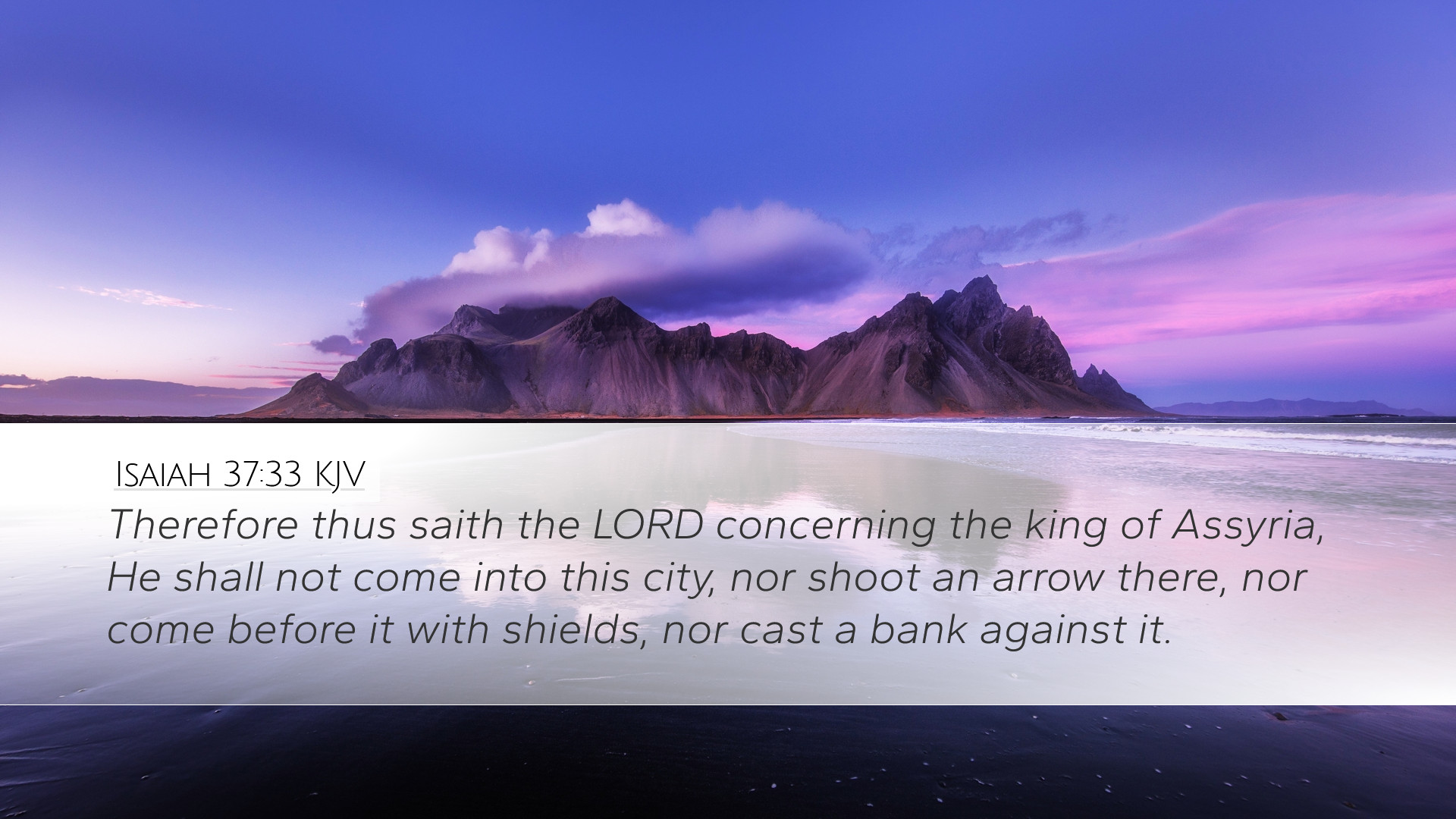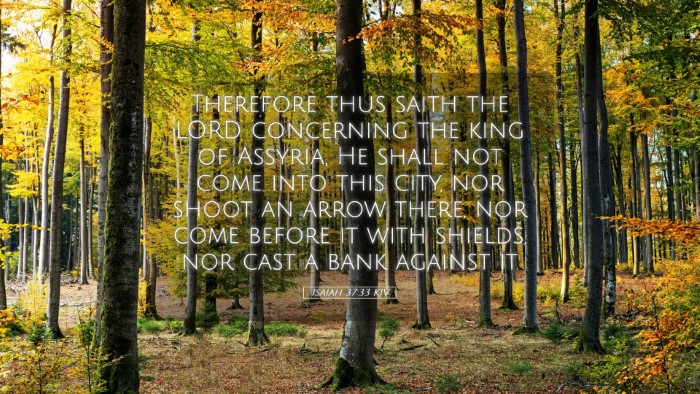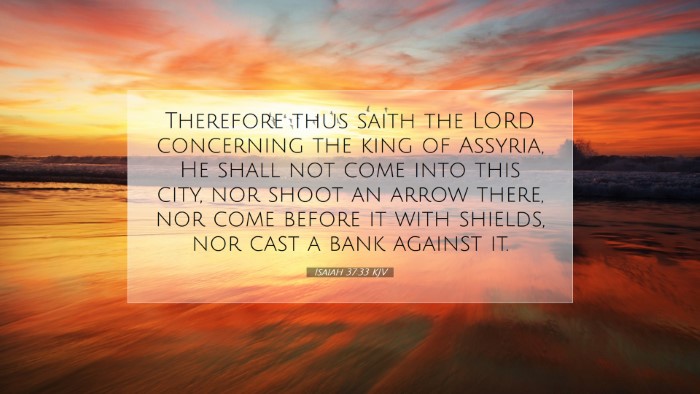Commentary on Isaiah 37:33
Isaiah 37:33: “Therefore thus says the Lord concerning the king of Assyria, He shall not come into this city, nor shoot an arrow there, nor come before it with shield, nor cast a bank against it.”
Introduction
Isaiah 37:33 serves as a pivotal verse in the narrative of God’s deliverance of His people Israel from the looming threat of Assyrian invasion. The context surrounding this verse is rich with theological implications, emphasizing God’s sovereignty, His protective nature, and His promises to His people. This commentary synthesizes insights from esteemed public domain scholars, encapsulating the depth of this short yet powerful verse.
Contextual Background
The historical backdrop of Isaiah’s prophecy involves the Assyrian king Sennacherib’s campaign against Judah in 701 B.C. The threat was not only military but psychological, as the Assyrians were known for their brutal tactics and had already conquered much of the region. The inhabitants of Judah were understandably fearful, and the prophet Isaiah delivers God’s message of reassurance.
Theological Insights
1. God’s Sovereignty:
-
The assertion that “the king of Assyria shall not come into this city” highlights the control that the Lord wields over earthly powers. Even in the face of overwhelming odds, God remains the ultimate authority, underscoring a theme prevalent throughout scripture.
-
Matthew Henry comments on the invincibility of God’s people when He is on their side, reinforcing the idea that their safety relies not on military might but on divine intervention.
2. Divine Protection:
-
The particular mention that Assyria would not “shoot an arrow” signifies complete divine protection. Adam Clarke notes that the Lord can stifle the enemy's plans before they even materialize. This provides believers today with deep assurance of God’s protective hand in the face of spiritual and physical warfare.
-
Albert Barnes reflects on the peace that comes with the knowledge that God stands guard over His people, allowing them to stand firm amid adversity.
Exegesis of Key Phrases
“He shall not come into this city”:
-
This phrase speaks directly to the siege mentality prevalent during times of conflict. The reassurance from God that the enemy would not even breach the walls symbolizes the ultimate safety and security found in God’s presence.
“Nor shoot an arrow there”:
-
This conveys not just physical safety but also emotional and spiritual reassurance. As Clarke explains, the faith of the people hinges on the faithfulness of God, who nullifies even the distant threats, represented by an arrow shot.
“Nor come before it with shield”:
-
The use of “shield” reflects a military context where defenses are crucial. Barnes suggests that the imagery of shields and arms signifies the preparatory efforts of mankind; however, God renders their preparations futile.
“Nor cast a bank against it”:
-
This part of the verse addresses siege warfare, where banks or mounds would be created to overcome fortifications. Matthew Henry emphasizes that God’s intervention prevents any form of siege from succeeding, highlighting His omnipotence.
Application for Believers
This verse provides invaluable lessons for modern believers.
-
Trust in God’s Promises: Just as God protected Jerusalem, believers today can rely on His promises of protection and salvation. This fosters a sense of peace during turbulent times.
-
Understanding Spiritual Warfare: This passage affirms the reality of spiritual battles. The metaphor of arrows and shields can be applied to the spiritual weapons of our adversary. Understanding that God stands between us and our enemies emboldens faith.
-
Increasing Faith and Prayer: The response of the king and the nation of Judah to the Assyrian threat involved seeking God earnestly. Isaiah’s message reinforces the importance of prayer in confronting challenges.
Conclusion
Isaiah 37:33 encases a profound and reassuring message about God's sovereignty and protective grace. By drawing from the insights of Matthew Henry, Albert Barnes, and Adam Clarke, one gains enriched understanding and interpretation of this verse. For pastors, scholars, and students, it serves as a reminder of the steadfastness of God in the face of daunting adversities and reinforces the necessity of trusting in His unfailing promises.


